
Photo: Greg Baker/Associated Press

Photo: Gurinder Osan/Associated Press

Photo: Gopal Chitrakar/Reuters
 PEKÍN (Reuters) - Las autoridades del Tíbet dijeron el jueves que habían arrestado a decenas de personas involucradas en una ola de violencia contra China, que ha arrasado la remota región y que motivó el despliegue de tropas por parte de Pekín para evitar mayores disturbios.
PEKÍN (Reuters) - Las autoridades del Tíbet dijeron el jueves que habían arrestado a decenas de personas involucradas en una ola de violencia contra China, que ha arrasado la remota región y que motivó el despliegue de tropas por parte de Pekín para evitar mayores disturbios.La respuesta de China a la violencia de la semana pasada generó fuertes críticas internacionales, y ha opacado los preparativos para los Juego Olímpicos de Pekín.
La oficina del fiscal en la capital tibetana, Lhasa, dijo que 24 personas enfrentaban cargos por "arriesgar la seguridad nacional, así como golpear, saquear, romper, quemar y otros crímenes graves" en los sangrientos disturbios del viernes, informó el jueves el diario Tibet Daily.
Los arrestos anunciados el jueves fueron los primeros desde que comenzaron los disturbios. Grupos tibetanos en el exilio dicen que cientos de tibetanos podrían estar detenidos, y el Servicio de Noticias de China informó que Lhasa ha publicado fotografías de más sospechosos buscados.
"Los hechos de los crímenes están claros y la evidencia es sólida, y deberán ser severamente castigados", dijo el ayudante del fiscal de Lhasa, Xie Yanjun.
Sus comentarios se hicieron eco de la acusación del Gobierno chino de que era el Dalai Lama y sus seguidores quienes habían organizado la violencia, una sensación que comparten muchos chinos comunes y corrientes.
"No creo que harían esto sin la manipulación del Dalai Lama o alguna otra organización (...) No creo que el pueblo tibetano quiera independencia. Cualquier tibetano normal estaría feliz de vivir bajo el gobierno de China", dijo Zhang Ming, de 25 años, un oficinista de Pekín.
LLAMAMIENTOS AL BOICOT
La inflexible respuesta de China a las manifestaciones ha provocado demandas para que se boicotee la ceremonia de inauguración de los Juegos en agosto por parte de grupos a favor de la independencia tibetana y algunos políticos.
El recorrido de la Antorcha Olímpica por 19 países, que comienza la próxima semana y también visitará el Tibet, posiblemente atraiga a manifestantes.
China ha desplegado tropas en el Tíbet y provincias vecinas donde viven grandes grupos étnicos tibetanos. Pero ha prohibido a extranjeros entrar a la región de montaña.
Los residentes de Pekín dijeron que no pudieron comprar billetes para el viaje en tren de 48 horas a Lhasa y varios agentes de viajes con sede en Pekín dijeron a Reuters que por el momento habían suspendido los viajes turísticos a la zona.
En Kangding, un pueblo principalmente tibetano en la provincia occidental de Sichuan, cerca del Tíbet, los caminos estaban repletos de tropas que bloqueaban la mayor parte del acceso. Notas en las paredes advertían a los vecinos de que no protestaran y se mantuvieran lejos de los seguidores del Dalai Lama.
"Resueltamente proteger la unidad de la patria, proteger la unidad entre los grupos étnicos", declaraba una pancarta roja.
El Gobierno chino se ha resistido a algunos llamamientos internacionales a dialogar sobre el conflicto y expresó una seria preocupación por los planes del primer ministro británico, Gordon Brown, de reunirse con el Dalai Lama durante su visita a Inglaterra en mayo.
"Si esos actos pueden ser tolerados, ¿hay alguna ley en el mundo? ¿Hay alguna justicia en el mundo?", dijo el portavoz del Ministerio de Relaciones Exteriores de China Qin Gang al preguntársele sobre el llamamiento al diálogo para terminar con la violencia del Papa Benedicto XVI.
/Por Chris Buckley/.*.
http://es.noticias.yahoo.com/rtrs/20080320/tts-china-tibet-ca02f96.htmlChina Says Tibet Protests Have Spread
ZHONGDIAN, China (AP) -- China blanketed restive Tibetan areas Thursday with a huge buildup of troops, turning small towns across a wide swath of western China into armed encampments.
Beijing acknowledged that last week's anti-government protests had spread far beyond Tibet's borders and that police opened fire on protesters. It warned foreign tourists and journalists to stay away from a huge expanse of territory across four provinces.
In an overture of peace, the Dalai Lama offered to meet with Chinese President Hu Jintao and other leaders, reiterating that he was not asking for Tibetan independence.
China has repeatedly ignored calls for dialogue, accusing the exiled Tibetan leader and his supporters of organizing violence in hopes of sabotaging the upcoming Beijing Olympics and promoting Tibetan independence.
Hundreds of paramilitary troops aboard at least 80 trucks were seen traveling along the main road winding through the mountains into southeastern Tibet. Others set up camp and patrolled streets in riot gear, helmets and rifles in the town of Tiger Leaping Gorge, a tourist attraction in Yunnan province bordering Tibet.
Farther north, the largely Tibetan town of Zhongdian, renamed Shangri-la a decade ago, was swarmed by 400 armed police. Many carried rifles and what appeared to be tear gas launchers. Residents walked freely among the military, and there was no sign of a daytime curfew.
The troop mobilization was helping authorities reassert control after the broadest, most sustained protests by Tibetans against Chinese rule in decades. Demonstrations had flared across Tibetan areas of Sichuan, Gansu and Qinghai provinces in support of protests that started in the Tibetan capital of Lhasa.
Led by Buddhist monks, protests had begun peacefully in Lhasa early last week but erupted into rioting on March 14, drawing a harsh response from Chinese authorities.
The crackdown drew worldwide attention to China's human rights record, threatening to overshadow Beijing's attempts to project an image of unity and prosperity in the lead-up to the Aug. 8-24 Olympics.
On Thursday, a group of 26 Nobel laureates said they ''deplore and condemn the Chinese government's violent crackdown on Tibetan protesters,'' calling for Beijing to exercise restraint.
''We protest the unwarranted campaign waged by the Chinese government against our fellow Nobel Laureate, his holiness the Dalai Lama,'' the group said in a statement released by the Elie Wiesel Foundation.
Tibetan exile groups have said 80 people were killed in the protest and its aftermath, while Beijing maintains that 16 died and more than 300 were injured.
Tibetan television in Lhasa showed video Thursday of black-clad police arresting 24 men. Handcuffed against a wall, the men -- some young, some old -- were charged with ''endangering national security, beating, smashing, looting and burning.''
The two remaining foreign journalists in Tibet -- Georg Blume of Germany and Kristin Kupfer of Austria -- were forced to leave Lhasa on Thursday, according to Reporters Without Borders. Earlier this week, Economist correspondent James Miles and a group of 15 Hong Kong reporters were forced out.
Speaking from the seat of his government-in-exile in Dharmsala, India, the Dalai Lama offered to meet with Hu and other Chinese leaders but said he would not travel to Beijing unless there was a ''real concrete development.''
''The whole world knows the Dalai Lama is not seeking independence, one hundred times, thousand times I have repeated this. It is my mantra -- we are not seeking independence,'' the 72-year-old Dalai Lama told reporters.
''The Tibet problem must be solved between Tibetan people and Chinese people,'' he said.
The Chinese Foreign Ministry, meanwhile, expressed ''grave concern'' over a planned meeting between British Prime Minister Gordon Brown and the Dalai Lama, telling Brown not to offer support to the Tibetans' exiled spiritual leader.
China says the riots and protests were organized from abroad by the Dalai Lama and his supporters.
Reinforcing that claim, state broadcaster China Central Television aired a 15-minute program Thursday night, showing how Tibetan rioters rampaged through Lhasa last week but none of the ensuing police crackdown.
Video from security cameras showed burned shops, wounded Chinese and a knife-wielding Tibetan standing atop a police car. Buddhist monks were shown throwing sticks and other debris at riot police in a scuffle on March 10, in an attempt to portray the protests as having been started by monks.
But authorities have moved to clamp down on unrest in Tibet and surrounding provinces, where more than half of China's 5.4 million Tibetans live. Moving from town to town, police have set up blockades and checkpoints to keep Tibetans in and reporters out.
Foreign Ministry spokesman Qin Gang said China is ''suggesting'' foreigners stay out of Gansu and Sichuan provinces for safety reasons.
But tour operators in the provinces said foreigners were barred from traveling in those areas and tour groups were banned from Tibet, isolating a region about four times the size of France.
An employee at the Nine Lakes Travel Agency in Lanzhou, Gansu province, said she had heard about recent protests and unrest in many counties around the province.
''Tourists are not allowed to enter the seven counties affected because it considered dangerous at the moment. It is not safe to travel here at this time,'' she said, refusing to give her name for fear of reprisal.
Despite the massive security, protests have continued to crop up in towns in Qinghai, Sichuan and Gansu provinces.
The official Xinhua News Agency said police shot and wounded four rioters ''in self-defense'' during violent protests Sunday in Aba County in Sichuan. It is the first time the government has acknowledged shooting any protesters during the unrest.
A Tibetan resident in Aba County said Thursday she had heard of numerous arrests of protesters.
''There are many, many troops outside. I'm afraid to leave the house,'' said the woman, who refused to give her name for fear of retaliation by authorities. Police could be heard shouting from loudspeakers for protesters to turn themselves in.
Troops blocked roads in nearby Sertar, also in Sichuan, confining residents to their homes, said a woman reached there by phone. The London-based Free Tibet Campaign reported that troops had been sent to the county after residents blew up a bridge near the village of Gudu.
A hotel worker in central Luqu County, in neighboring Gansu province, said she had not left the hotel in four days because she was afraid.
''On the 16th, hundreds of Tibetan protesters marched in the streets, throwing rocks and breaking windows. The streets are now filled with police officers,'' she said, refusing to give her name for fear of reprisal. ''Our hotel is booked out with tourists, but no one feels safe enough to set foot outside.''
http://www.nytimes.com/aponline/world/AP-China-Tibet.html?_r=1&oref=slogin







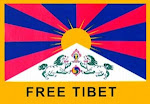







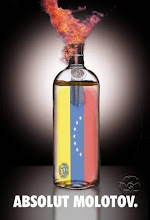
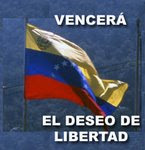
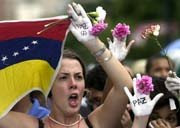

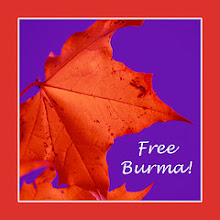

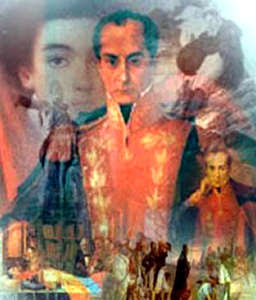
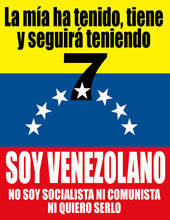
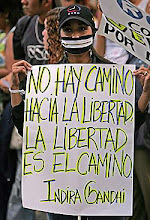




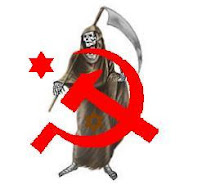
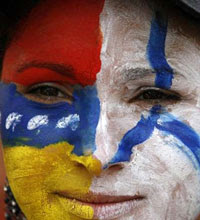
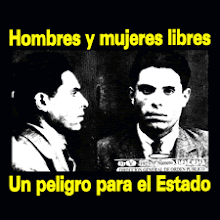





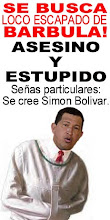
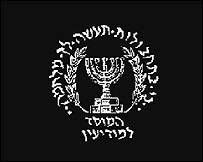

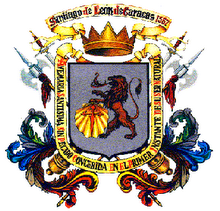






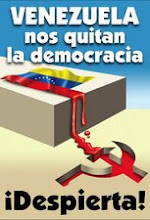









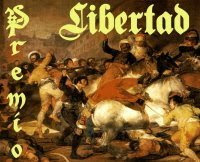



















1 comentario:
tibet libre!!!!
china fuera!!!!!!
http://quepuedohacerhoyeninternet.blogspot.com/
echale un vistaso si te apetes xD
Publicar un comentario